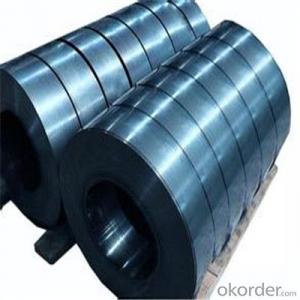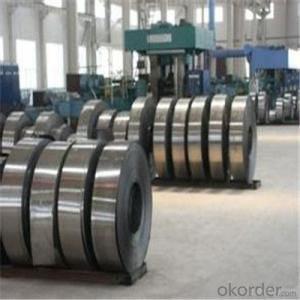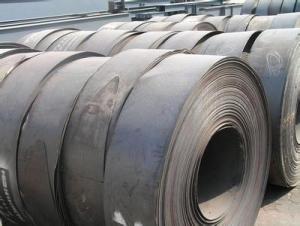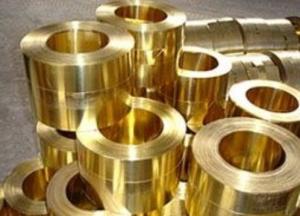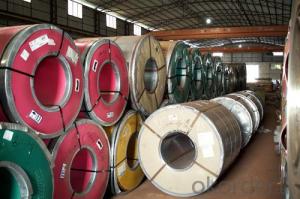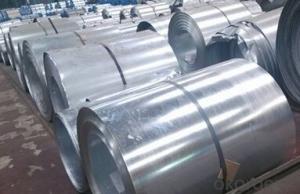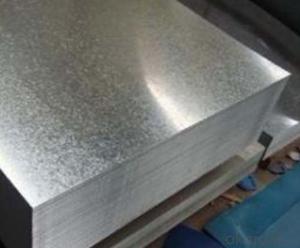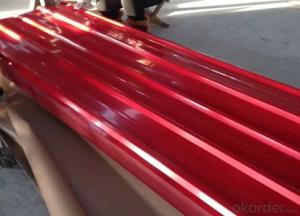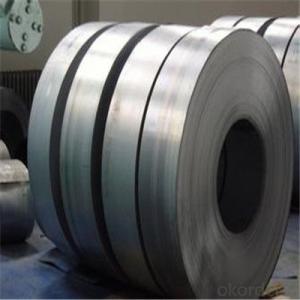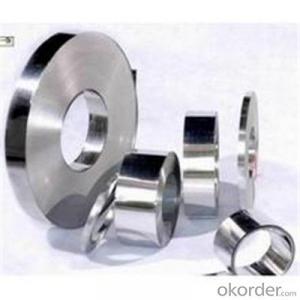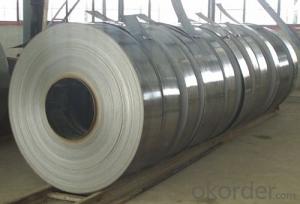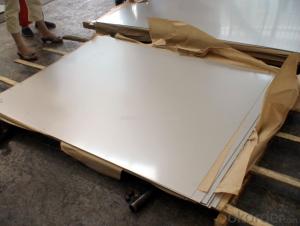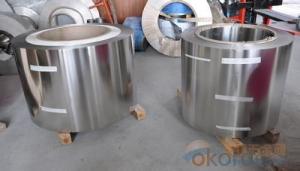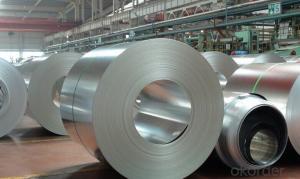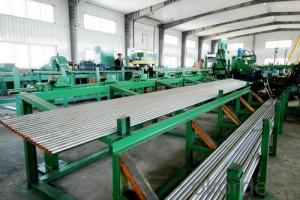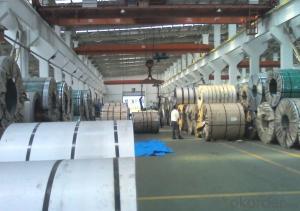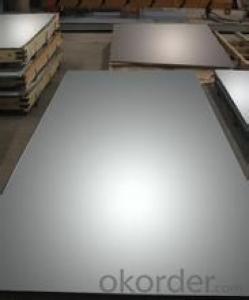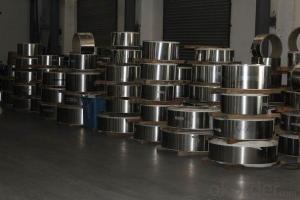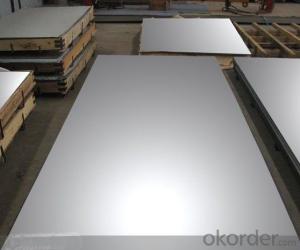Cold Rolled Steel Strip Coils in Various Materials from China
- Loading Port:
- Qingdao
- Payment Terms:
- TT OR LC
- Min Order Qty:
- 66 m.t.
- Supply Capability:
- 1222665 m.t./month
OKorder Service Pledge
OKorder Financial Service
You Might Also Like
Item specifice
Description of Steel Strip Coils:
Steel strips is one of our main products that is widely used in making band saw blade & other blades to cut paper, weed, etc.
Festures of Steel Strip Coils:
1.Thickness: 0.14-3.0mm
2.width:30-600mm
3.zinc coating: 30-275g
4.material:Q195, Q235,SGCC, A653 CS-B, DX51D,SGCD,SGHC,S350GD,S450GD,S550GD
5.spangle: zero spangle, regular spangle, small spangle
6.surface treatment: chromated and oiled, chromated and non-oiled
7.packing: export standard packing
8.Payment: TT or L/C
9.MOQ: 25TON
10.coil weight: 3-4ton
11.quality: soft or hard quality
Specifications of Steel Strip Coils:
1)Material:SPCC,SPHC,Q195,Q235,Q345,Q345B
2)Thick:0.15-3.0mm
3)Width:30-700mm
4)Zinc coating:Z6 to Z27(60g/m2 to 275g/m2, double sides)
5)Surface condition:Regular spangle
6)Coil ID:508mm
7)Coil OD:1000~1500mm
8)Packaging Detail: Export standard package,with PVC,steel cover.
9)productive capacity:6500tons per month
Images of Steel Strip Coils:
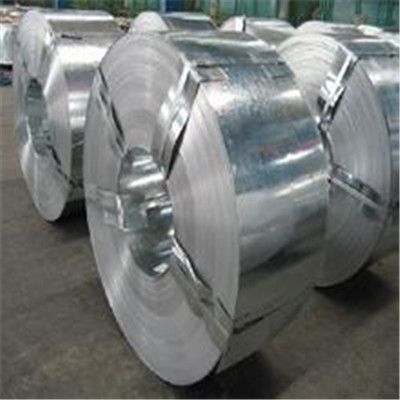
FAQ
1.What's your MOQ?
25MT, it is for one container.
2.Do you have QC teams?
Yeah, sure, our QC team is very important, they will keep the quality control for our products.
3. What's your normal delivery time?
Our delivery time about 10-20days for standard sizes, if you have other requirements like hardness and width ,it is about 20-40days.
- Q:How do steel strips compare to steel sheets?
- Various industries utilize steel strips and steel sheets, which are both common forms of steel. However, they vary in terms of thickness, width, and application. Steel strips, being narrow and elongated, typically boast a thickness ranging from 0.2mm to 6mm and a width below 600mm. These strips find frequent use in precise applications, such as automotive components, electrical appliances, and construction materials. Their slender nature allows easy manipulation, enabling bending, forming, and cutting into specific shapes. Additionally, their narrow size makes them an ideal choice for weight reduction in crucial applications. Conversely, steel sheets are larger and flat pieces of steel, usually featuring a thickness between 0.6mm and 25mm and a width exceeding 600mm. Construction, shipbuilding, industrial machinery, and general fabrication widely employ steel sheets. Their structural strength and stability render them suitable for load-bearing purposes, including building frameworks, bridges, and heavy machinery. Although both steel strips and steel sheets share the same material, their differing dimensions and applications provide them with distinct utilities. Steel strips exhibit versatility, allowing intricate designs and precise manufacturing. On the other hand, steel sheets offer strength and stability for heavy-duty applications. Ultimately, the choice between steel strips and steel sheets depends on the specific project requirements and desired characteristics of the final product.
- Q:What are the different types of corrosion protection for steel strips?
- There are several different types of corrosion protection methods for steel strips, including galvanization, painting, powder coating, and the use of corrosion inhibitors. Galvanization involves coating the steel strips with a layer of zinc, which provides a sacrificial barrier, protecting the underlying steel from corrosion. Painting and powder coating involve applying a protective layer of paint or powder on the steel, which acts as a barrier against moisture and corrosive elements. Corrosion inhibitors are chemical compounds that can be applied to the steel strip's surface to prevent corrosion by forming a protective layer.
- Q:Are steel strips flexible?
- No, steel strips are not flexible. They are rigid and do not easily bend or deform.
- Q:Are steel strips suitable for the manufacturing of electrical transmission towers?
- Yes, steel strips are suitable for the manufacturing of electrical transmission towers. Steel has excellent strength and structural properties, making it an ideal material for constructing transmission towers that need to withstand heavy loads and adverse weather conditions. Steel strips can be easily processed and fabricated into the required shapes and sizes, ensuring the structural integrity and stability of the towers. Additionally, steel is highly durable and resistant to corrosion, which is important for the long-term reliability and maintenance of transmission towers.
- Q:How are steel strips used in the automotive aftermarket?
- Steel strips are commonly used in the automotive aftermarket for various purposes such as repairing and reinforcing vehicle components. They are often utilized to strengthen body panels, repair damaged frames, and reinforce structural parts. Steel strips can also be used to fabricate custom brackets, supports, or other specialized components, offering versatility and durability in the aftermarket automotive industry.
- Q:How are steel strips processed for surface coating removal?
- Steel strips are processed for surface coating removal using various methods such as mechanical abrasion, chemical stripping, or thermal treatment. Mechanical methods involve the use of abrasive materials or tools to physically remove the coating, while chemical stripping involves the application of chemical solutions to dissolve or soften the coating. Thermal treatment, on the other hand, involves subjecting the steel strips to high temperatures to burn off the coating. Each method is selected based on the type and thickness of the coating, as well as the desired end result.
- Q:Can steel strips be used for making electrical terminals?
- Indeed, the utilization of steel strips is feasible for the production of electrical terminals. Steel, being an adaptable substance, possesses commendable conductivity and remarkable strength, rendering it appropriate for a wide range of applications within the electrical sector. The creation of steel terminals can be achieved by shaping steel strips through procedures such as stamping, bending, and welding. These terminals establish a dependable connection for electrical wires and components, guaranteeing the efficient transmission of electrical current. Furthermore, steel strips can undergo plating with substances like tin or nickel to augment their resistance against corrosion and enhance their conductivity. In summary, steel strips present a practical choice for the fabrication of electrical terminals due to their electrical properties, durability, and ease of production.
- Q:Can steel strips be welded or joined?
- Indeed, it is possible to weld or join steel strips together. Welding serves as a prevalent technique utilized for the fusion of steel strips by heating and melding their edges. This procedure necessitates the application of heat and a filler substance, like welding wire or electrode, to establish a robust bond. Welding facilitates an uninterrupted and smooth linkage between the steel strips, thereby imparting strength and stability to the joint. Moreover, multiple welding methods, including arc welding, TIG welding, and MIG welding, can be employed based on the specific demands of the given application.
- Q:How do steel strips perform in high-pressure applications?
- Steel strips are highly reliable and perform exceptionally well in high-pressure applications. Due to their inherent strength and durability, they can withstand the extreme forces and maintain structural integrity, making them ideal for various industries such as oil and gas, aerospace, and automotive. Additionally, steel strips offer excellent resistance to corrosion and temperature fluctuations, further enhancing their performance in high-pressure environments.
- Q:Can steel strips be used in the production of beverage cans?
- Yes, steel strips can be used in the production of beverage cans. Steel is a commonly used material in the manufacturing of cans due to its strength, durability, and ability to maintain the quality and freshness of the beverages.
1. Manufacturer Overview |
|
|---|---|
| Location | |
| Year Established | |
| Annual Output Value | |
| Main Markets | |
| Company Certifications | |
2. Manufacturer Certificates |
|
|---|---|
| a) Certification Name | |
| Range | |
| Reference | |
| Validity Period | |
3. Manufacturer Capability |
|
|---|---|
| a)Trade Capacity | |
| Nearest Port | |
| Export Percentage | |
| No.of Employees in Trade Department | |
| Language Spoken: | |
| b)Factory Information | |
| Factory Size: | |
| No. of Production Lines | |
| Contract Manufacturing | |
| Product Price Range | |
Send your message to us
Cold Rolled Steel Strip Coils in Various Materials from China
- Loading Port:
- Qingdao
- Payment Terms:
- TT OR LC
- Min Order Qty:
- 66 m.t.
- Supply Capability:
- 1222665 m.t./month
OKorder Service Pledge
OKorder Financial Service
Similar products
New products
Hot products
Related keywords
